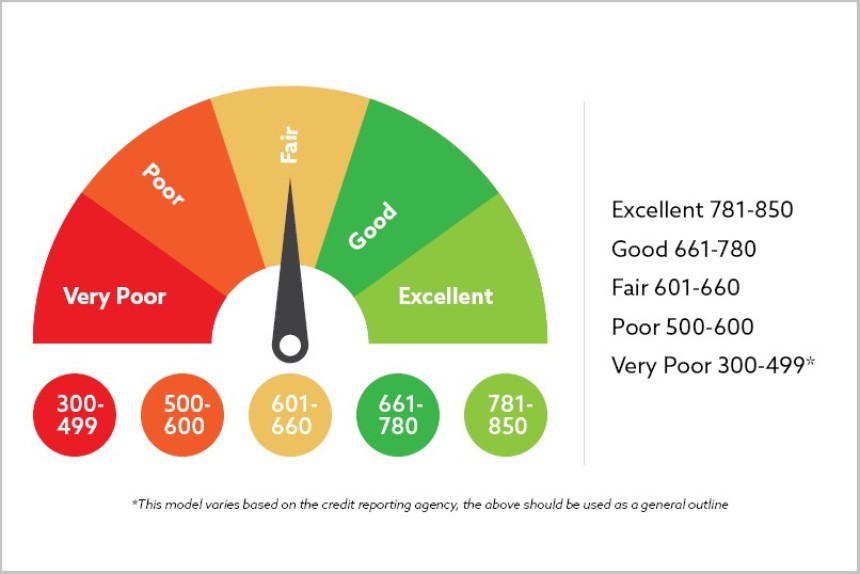
How Can I Raise My 450 Credit Score?
It is possible to raise your 450 credit score with proper planning. See steps needed to increase your credit score by 50 - 100 points.
Raising a credit score from 450 is a challenging but achievable goal. A low credit score can affect your ability to secure loans, credit cards, and even impact certain job opportunities. However, with a strategic approach, you can improve your credit score over time. Here’s a comprehensive guide to help you understand and implement effective strategies to raise your credit score from 450.
Understanding Your Credit ScoreBefore diving into improvement strategies, it’s crucial to understand what a credit score is and what factors influence it. Credit scores typically range from 300 to 850, with scores below 580 considered poor. A score of 450 indicates significant credit challenges. Credit scores are determined by:
- Payment History (35%): This is the most significant factor. It reflects whether you’ve paid your bills on time.
- Credit Utilization (30%): This measures the ratio of your credit card balances to your credit limits.
- Length of Credit History (15%): The longer your credit history, the better.
- Types of Credit in Use (10%): Having a mix of credit types, like credit cards and installment loans, is beneficial.
- New Credit (10%): This includes the number of recent credit inquiries and new accounts.
Begin by obtaining a copy of your credit report from each of the three major credit bureaus: Equifax, Experian, and TransUnion. You’re entitled to a free report from each bureau once a year through AnnualCreditReport.com. Review the reports for errors or inaccuracies that could be negatively impacting your score.
- Dispute Errors: If you find incorrect information, file a dispute with the credit bureau. Correcting errors can improve your score.
Your payment history is the most critical factor in your credit score. Even one missed payment can have a significant impact.
- Set Up Reminders: Use calendar reminders or automatic payments to ensure you never miss a due date.
- Negotiate with Creditors: If you’re struggling to make payments, contact your creditors to negotiate a payment plan or request a temporary reduction in payments.
High credit card balances relative to your credit limit can damage your credit score. Aim to reduce your balances to below 30% of your credit limit.
- Create a Budget: Track your spending and create a budget to manage your finances better.
- Pay More Than the Minimum: Paying only the minimum due can keep you in debt longer and hurt your credit score.
Increasing your credit limits can help lower your credit utilization ratio, provided you don’t increase your spending.
- Request Limit Increases: Contact your credit card issuer to request a higher limit. However, avoid making new purchases on the increased limit.
While applying for new credit can sometimes help your score by increasing your available credit, it’s essential to be cautious.
- Avoid Frequent Applications: Each credit inquiry can slightly lower your score, so apply for new credit sparingly.
- Choose the Right Credit Products: Consider secured credit cards or credit-builder loans, which are designed for individuals with low credit scores.
If you have limited or poor credit history, building a positive history is essential.
- Use Credit Responsibly: Make small purchases on your credit cards and pay them off in full each month.
- Consider Becoming an Authorized User: If you have a trusted friend or family member with good credit, ask if you can be added as an authorized user on their credit card. This can help improve your credit history.
High levels of debt can significantly impact your credit score. Focus on managing and reducing your overall debt.
- Create a Debt Repayment Plan: Consider strategies such as the debt snowball or debt avalanche method to pay off your debts systematically.
- Seek Professional Help: If your debt is overwhelming, consider consulting a credit counseling service for professional guidance.
A healthy credit mix, including credit cards, installment loans, and retail accounts, can positively affect your score.
- Diversify Credit Types: If you only have credit cards, consider adding an installment loan like a car loan or personal loan, if financially feasible.
- Use Existing Credit Wisely: Make sure to use and manage your existing credit responsibly.
Regular monitoring helps you stay informed about your credit status and detect any issues early.
- Sign Up for Credit Monitoring: Many services offer credit monitoring to alert you to changes in your credit report.
- Review Your Reports Periodically: Regularly review your credit reports to ensure accuracy and track your progress.
Raising your credit score is not an overnight process. It requires consistent effort and responsible financial behavior. Here are some long-term strategies to help you maintain and further improve your credit score:
1. Build a Savings BufferHaving an emergency fund can prevent financial stress and help you avoid missed payments.
- Save Regularly: Aim to save a small percentage of your income each month.
- Use Savings Wisely: Keep your emergency fund separate from your spending accounts to ensure it’s available when needed.
Understanding how credit works and the factors that influence your score can help you make informed decisions.
- Read Books and Articles: There are many resources available to help you understand credit management.
- Attend Workshops: Look for local workshops or webinars on financial literacy and credit management.
Credit scoring models and financial regulations can change. Staying informed helps you adapt to new developments.
- Follow Financial News: Keep up with news related to credit and finance.
- Subscribe to Financial Newsletters: Many financial websites offer newsletters with updates and tips.
Improving a credit score from 450 requires diligence, patience, and a commitment to better financial habits. By understanding the factors that influence your credit score and implementing the strategies outlined in this guide, you can work towards raising your credit score and achieving financial stability. Remember, the journey to a better credit score is gradual, but with consistent effort and responsible behavior, you can achieve significant improvements over time.
Regularly review your progress, make adjustments as needed, and stay focused on your long-term financial goals. As your credit score improves, you’ll find that you gain access to better financial products and opportunities, leading to a more secure and prosperous financial future.





